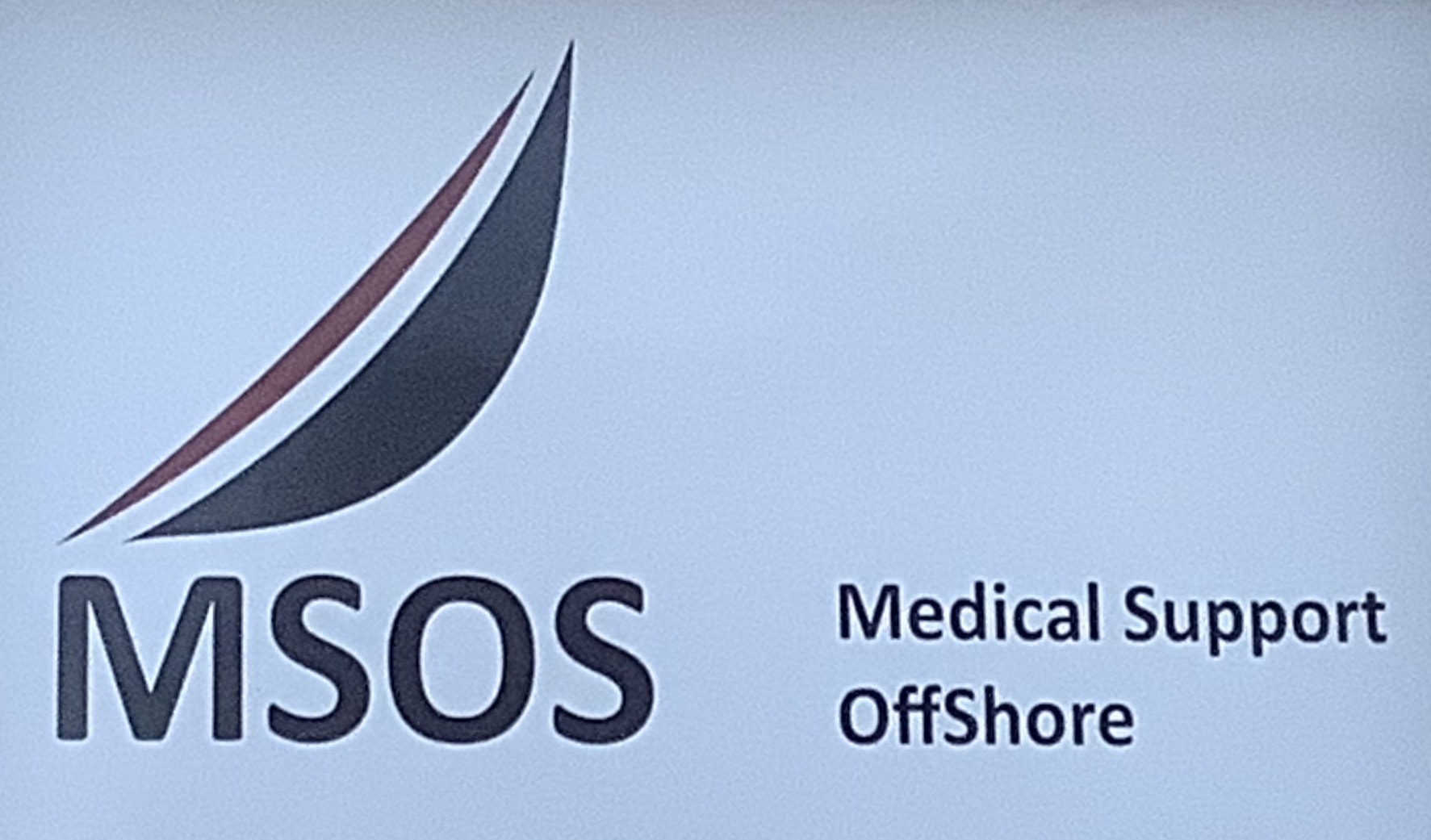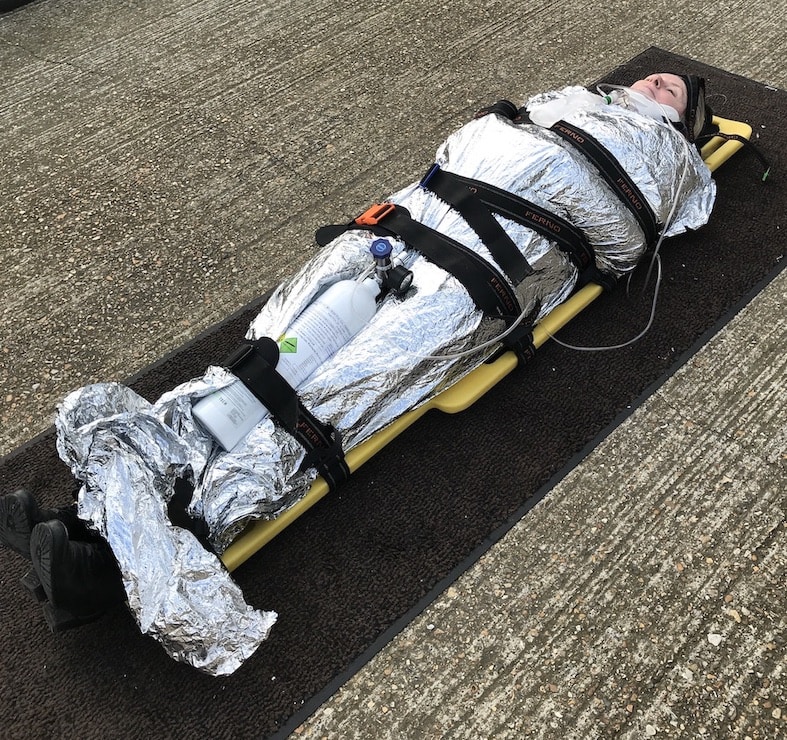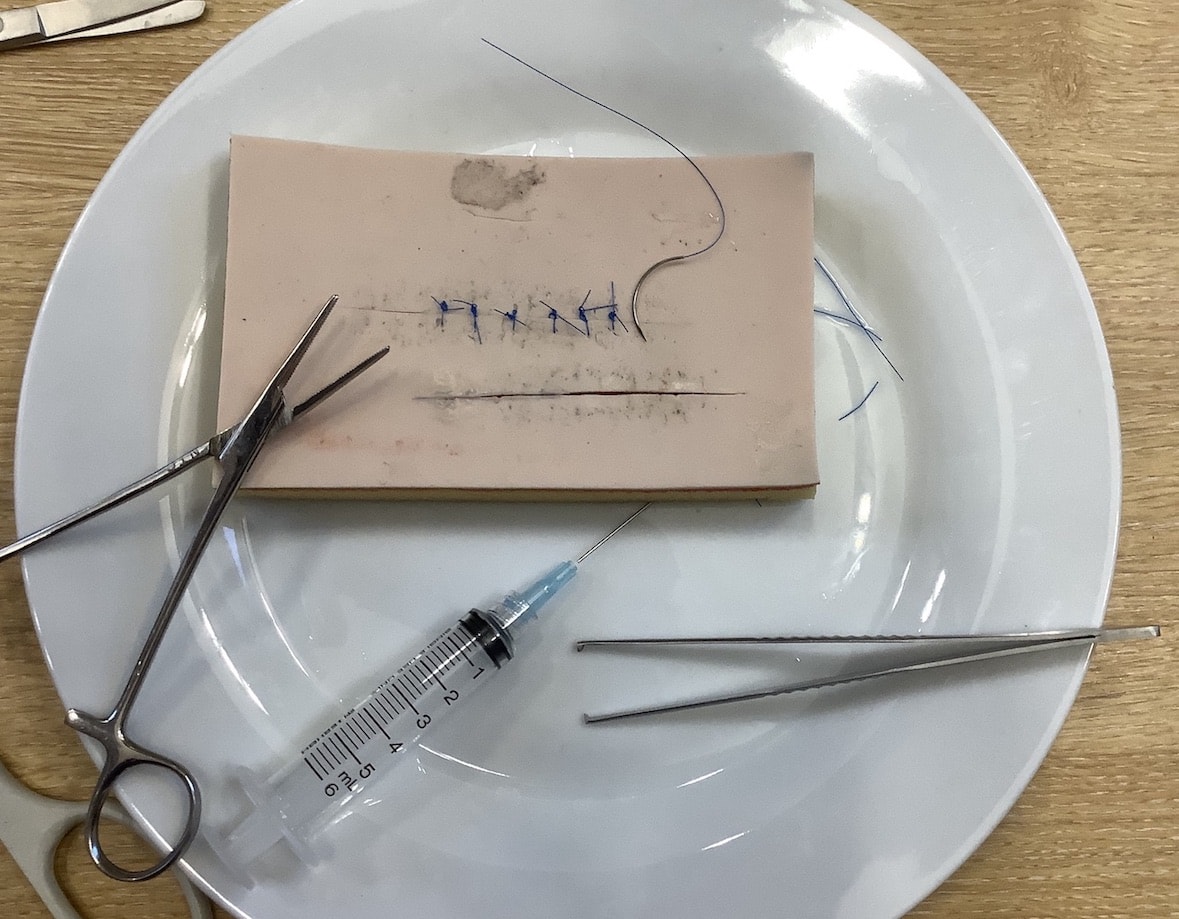February and March have been busy training times for us. As mentioned in the previous post, we have already completed our Sea Survival and Offshore Safety. Another big course for us was our four day First Aid.
As a teacher, I have always had to have a first aid certificate, but it was bandages, asthma and resuscitations. All the things that you need to keep an injured person comfortable until the real professionals can help. When we set off, there will be times when we are in remote areas with limited medical support and sometimes we will be several days, or even weeks, from help. It is therefore crucial that we carry the medical equipment that may need and that we know how to use it!
Medical Support Offshore (MSOS)

As with everything we have encountered in the last five years, we needed to research this. How do we know what we need? Where do we get it from? Who can train us? What support can we get once we leave, especially in an emergency?
Research and personal recommendations led us to MSOS based in Southampton run by Dr Spike Briggs and his team. They can do all of this!
MSOS provide specialist training ranging from Elementary First Aid to the use of oxygen and defibrillators and advanced wound repair. They can also supply medical kits for private vessels, commercial vessels, expeditions and aircraft. And finally, for us, they provide technical support twenty four hours a day, seven days a week direct to UK based doctors; doctors who are experts in telemedical support, remote medicine and emergency care. Everything that we want to support us in far flung places.
MCA Proficiency in Medical First Aid

This was the course recommended for us; a four day course which would teach us how to provide emergency first aid in the case of an accident causing trauma or in the event of sudden medical illness.
It was a busy four days with a mixture of classroom learning and practical activities covering cardiac resuscitation, catastrophic bleeding, reducing fractures, skin repair and managing medicines. Practical activities included taking blood pressures, testing urine and blood samples, preparing casualties for evacuation, inserting cannulas and catheters and suturing!
My head was swimming!! But it was a brilliant four days. Massive thank you to MSOS and our instructor Glenn.

Blimey! I hope you never have to use it!
Me too!!
The same company will kit us out with a first aid kit for offshore travel and also medical support while away. So if we need to do anything like this someone can talk us through on the phone… x